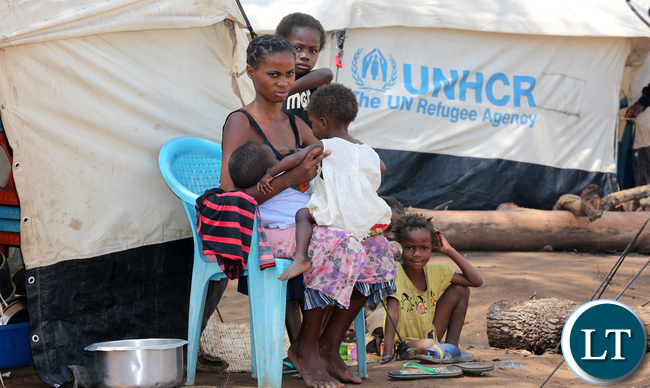Japanese International Cooperation Agency (JICA) has commenced implementation of a project dubbed ‘HOPE’ at a cost of 46.6 million Japanese Yen (about K78 million) meant to promote local integration of former refugees in Mayukwayukwa and Meheba refugee settlements.
JICA Team Leader for Donor Coordination, Sachio Yamamoto said the development of the resettlement areas and the local integration of former refugees is steadily progressing with the support of the international community.
Mr Yamamoto said it is against this background that HOPE was launched by the department of resettlement in the office of the Vice President (DOR) in 2020 with the aim of developing an improved approach to accelerate local integration.
He disclosed that the HOPE project is being implemented with the technical and financial support from JICA.
Mr Yamamoto who was accompanied by North-Western Province Principal Land Resettlement Officer, Paul Chisanga, was speaking when he paid a courtesy call on Kalumbila District Commissioner, Brenda Sankisa today.
He explained that the HOPE project’s goal is to develop the improved approach of the local integration.
“HOPE intends to promote the local integration of former refugees in Mayukwayukwa and Meheba resettlement schemes by developing an approach for resident-oriented resettlement planning, an approach for improving livelihood that encompasses inclusive market-oriented agriculture with better household management and enhanced information sharing and coordination among government and donor agencies for resource mobilisation,” Mr Yamamoto said.
He also seized the opportunity to share his concerns over the local integration area.
“People in the local integration area are still living like refugees in the local integration…we also want those former refugees who are yet to move to the new area to do so, so as to achieve the spirit of local integration,” Mr Yamamoto said.
He also said the implementation of the project has delayed due to the outbreak of the COVID-19 and expressed hope that government will extend the project.
“The project commenced two years ago but was affected by the COVID-19 outbreak. The HOPE project is meant to last four years from 2020-2024… There is need to agree with the government and DOR in Lusaka to consider extension of the project because one and a half years may not be enough to implement the project,” Mr Yamamoto said.
He also stated that the implementation of the project requires participation of stakeholders from government and other international agencies as the process of local integration is a very important one.
And Mr Chisanga said 53,000 hectares of land is available for the local integration of refugees in Meheba.
“The scheme is 68,000 hectares and 15,000 hectares has been left for refugees, while 53,000 hectares is available for local integration of former refugees and Zambians,” he said.
Meanwhile, Ms Sankisa said her office is ready to collaborate with partners looking at improving the livelihood of former refugees and the host community.
“My office is ready to work with you… a plan has to be put in place and priorities identified. The provision of basic necessities will help attract people to settle in the local integration area,” Sankisa said.



It’s only in Africa where a fellow Africans can be classed a refugee on African land.
Very generous act by JICA! But I’m wondering – if these people are no longer classed as refugees, why are they still in Zambia? Shouldn’t they have been repatriated back to their country/s by now? Of course, all those still at risk, should be given sanctuary until its safe to go home – that’s the end goal of refugee sanctuary; not permanent settlement. If so many hectares will be needed to accommodate the people – how large is the population? Aren’t we effectively creating a “mini” country within a country? I think this needs reconsideration.
#plant a tree please.
They are called former refugees. It means that they are no longer refugees, they are now permanent residents. It is only in Africa where even a 5th generation of people who came as refugees are still considered to be refugees. Ukrainians are given resident and work permits upon their arrival in European countries. Africa is…
Comments are closed.